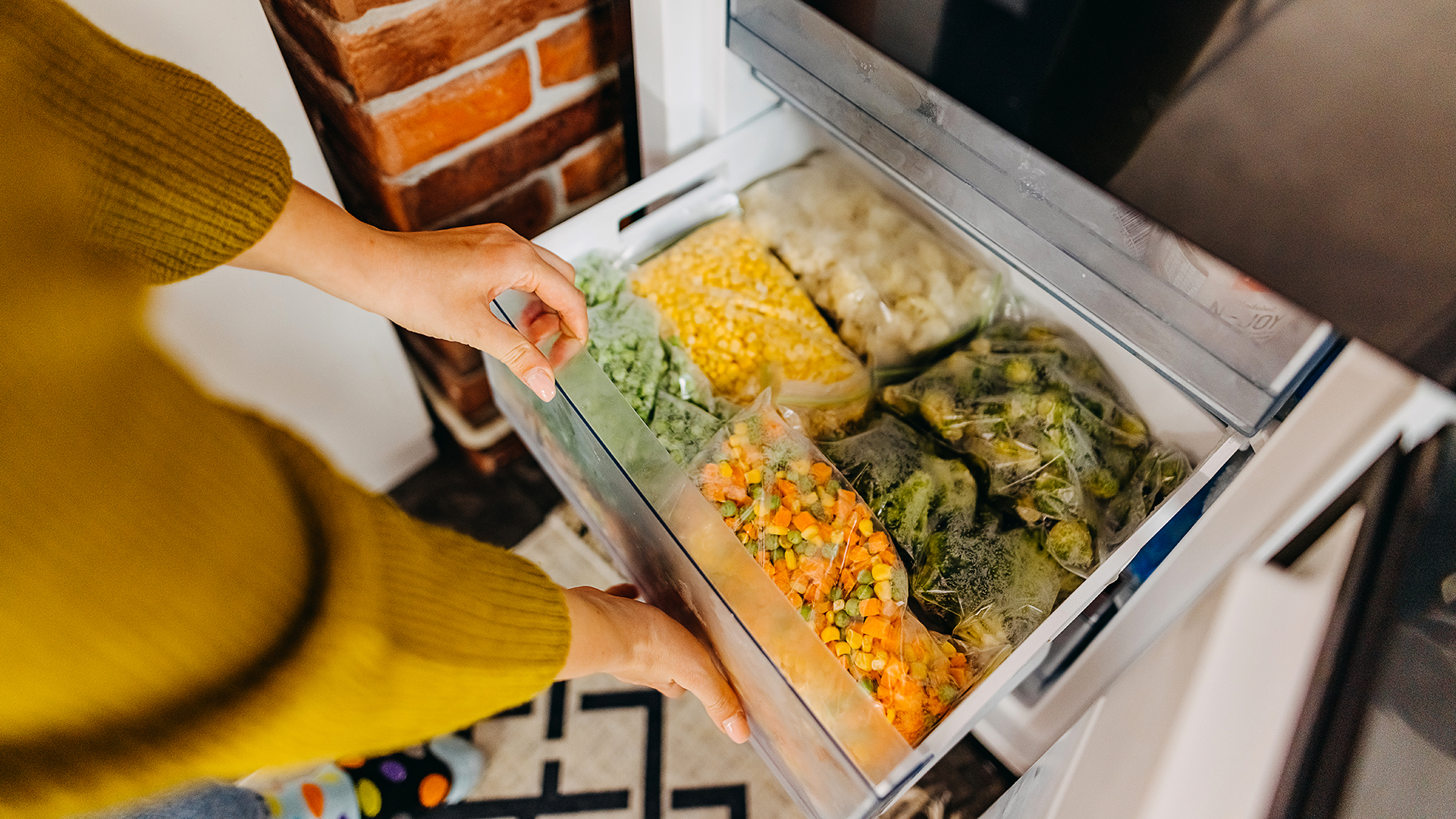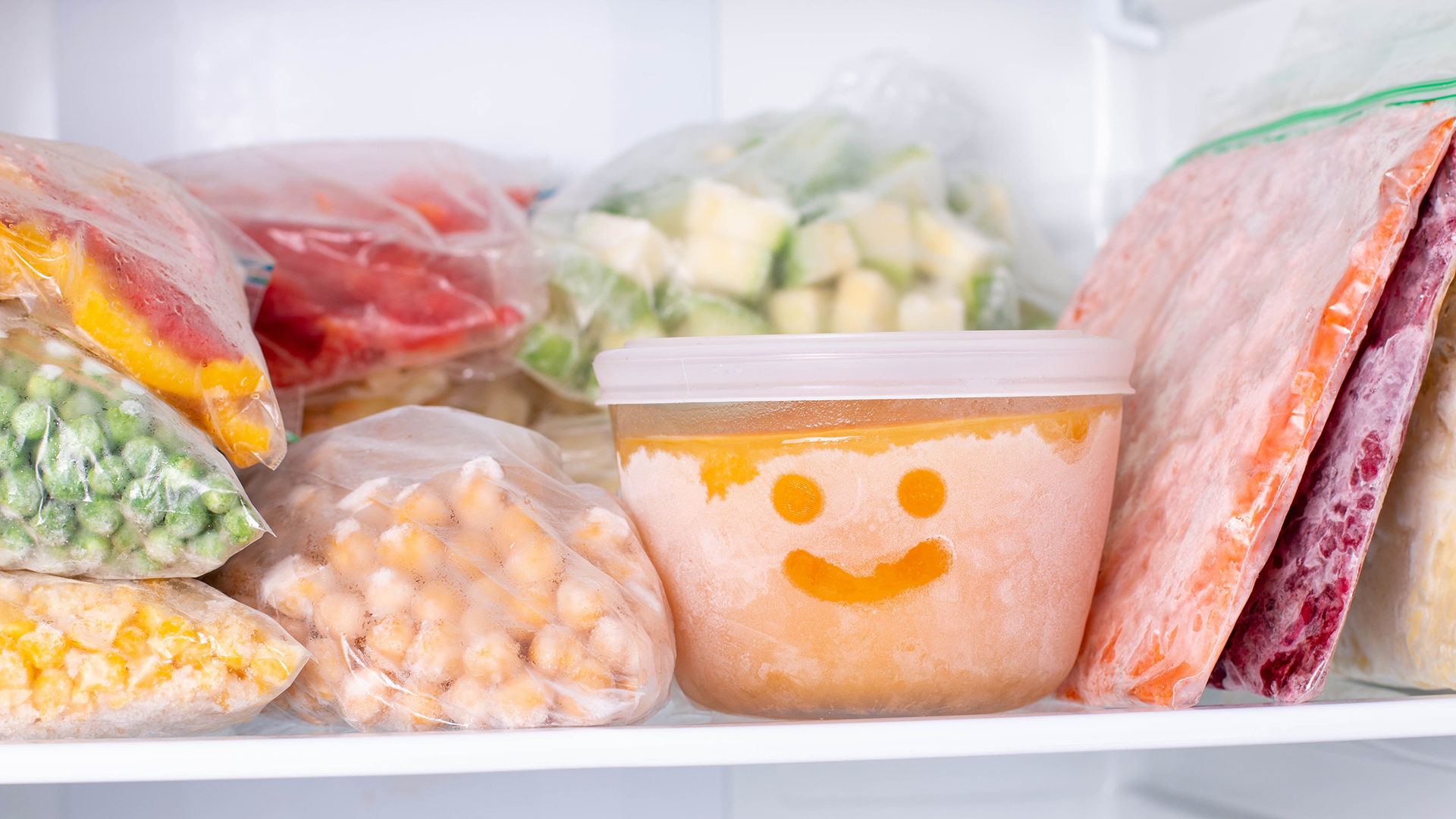How to prevent freezer burn
These tips on how to prevent freezer burn will banish it from your groceries forever

Sign up to receive the latest news, reviews, buying guides and deals direct to your inbox
You are now subscribed
Your newsletter sign-up was successful
If you’ve ever wondered how to prevent freezer burn from affecting your frozen food then you're in the right place. We tackle this very subject using expert guidance on how to avoid freezer burn from a food safety specialist.
We'll be covering exactly what causes freezer burn, so that you know how to decrease the likelihood of it happening to your freezer food in the future. Knowing the triggers is the first step to knowing how to prevent freezer burn. After that, we’ll give you the best tips and tricks for how to prevent freezer burn. Expect helpful tips that can be used to prevent freezer burn in any of the best freezers out there.
What is freezer burn?
Curious about what is freezer burn? Freezing food is a convenient way to store your groceries for longer, but there are ways to accidentally expose your food to freezer burn. This can be either through leaving the food in the freezer for too long, or leaving it exposed to the cold air (rather than being securely packaged).
Freezer burn can cause food to have an altered texture and flavor in some parts – and, in extreme cases, all over. In most cases, freezer burn can be prevented from spoiling perfectly good frozen food, so we asked a food safety specialist for her advice on how to prevent freezer burn.

Food safety expert Jenna Brown, is an Environmental Health Practitioner, qualified by the Chartered Institute of Environmental Health (CIEH). Her speciality is food safety which she helps other parents to better understand with informative content on her website Food Safety Mum & Instagram page @thefoodsafetymum.
To get to the root of how to prevent freezer burn from striking we need to understand why it happens in the first place. Jenna explains how freezer burn happens, “Freezer burn occurs when the food comes into contact with air, resulting in the food losing its moisture. Although you won't come to any harm eating food with freezer burn, the quality of the food will have deteriorated and can affect the flavor and texture of food, which you might want to bear in mind if your food has severe freezer burn!”
Can you eat freezer burned food?
If you're wondering whether freezer burn on chicken is safe to eat, or any other type of food, the answer is technically, yes. In a pinch, a freezer–burned piece of food will not make you ill. However, it’s worth noting that it is unpleasant to eat.
Sign up to receive the latest news, reviews, buying guides and deals direct to your inbox
Essentially, the food has been dehydrated in the spots where it is freezer burned, making the texture of the food tough and dry. The flavor is also affected, with some food tasting musty or flavorless because of the loss of the water content containing flavor molecules.
How to prevent freezer burn
Jenna Brown, Environmental Health Practitioner, explains, "There are two main causes of freezer burn; exposure to air and the length of time that the food is in the freezer. Put simply, the longer your food is in the freezer, the greater the chance of developing freezer burn; which is why you should try to use frozen food within 3-6 months as a general rule of thumb (though it won't become unsafe if left for longer)."
As we now know, freezer burn has two main triggers; food being in the freezer for too long and food being left exposed to air. The best way to prevent freezer burn is to use this knowledge to control the way that food is stored and how long it is in the freezer for.
This is made easier with these top tips shared with us by our food safety expert. Jenna explains below how to prevent freezer burn.
"Storing foods correctly in the freezer will help you combat freezer burn! For example:
• Always use the correct container when storing food in the freezer, using items such as air-tight containers or freezer bags.
• If you're using freezer bags, remember to squeeze out all of the air.
• Label food with a date so you can use a 'First in First out' rotation in your freezer. This will mean that food generally isn't in the freezer any longer than it needs to be!
• Cool food before placing it inside the freezer. After cooking, cool food as quickly as possible and make sure you place your food in the fridge or freezer within 2 hours of cooking.”
Give these tips a try for yourself and see how easy it is to keep freezer burn at bay. With a little organization and food prep, it’s not hard to protect your frozen food and you’ll never waste a frozen meal again.
Discover more guides for the home…
Best front load washers
Best top load washers
Best dryers
Best dishwashers
Best french door refrigerators
Tanisha started her career in commercial retail buying for one of Amazon UK’s Top 10 revenue grossing online homeware retailers. Years spent obsessing over homeware products made it an easy career switch to writing about them. Her freelance career has seen her craft customer-focused web content for brands big and small, as well as writing articles in the health, lifestyle, home and retail sectors.

